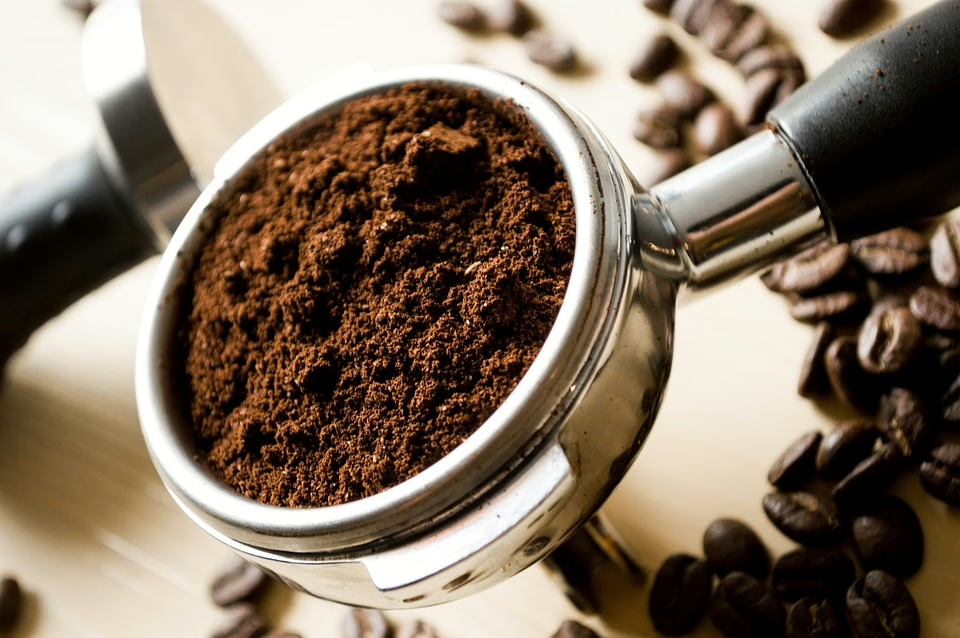Sustainable Sipping: Eco-Friendly Ideas for Your Drinks Cabinet
In an age where environmental consciousness is more pertinent than ever, it is vital to rethink the choices we make in every aspect of our lives—especially when it comes to the food and beverages we consume. The drinks cabinet offers a fantastic opportunity to embrace sustainability, supporting the planet while enjoying exquisite flavors. This article will explore eco-friendly options for various beverages, sustainable packaging, responsible sourcing, and ways to create a more environmentally-friendly drinks cabinet.
The Importance of Sustainable Choices
Sustainability is not just a trend; it’s a necessity. As the global population continues to grow, the demand for resources increases, leading to depletion and environmental degradation. The beverage industry is no exception, contributing significantly to carbon emissions, plastic waste, and water usage. According to the World Wide Fund for Nature (WWF), if trends continue, we will need the resources of two planets by 2030 to sustain our current consumption patterns. Thus, making conscious choices in our drinks cabinets is an essential step in moving towards a more sustainable future.
Understanding the Environmental Impact
Before delving into eco-friendly alternatives, it is essential to recognize how traditional beverage choices impact the environment. Here are some key areas of concern:
-
Water Usage: The production of certain beverages—including beer, wine, and spirits—requires substantial amounts of water. For example, producing a liter of beer can consume over 300 liters of water.
-
Carbon Footprint: The transportation of beverages contributes significantly to their carbon footprint, particularly for products imported from long distances. Additionally, production processes that rely on fossil fuels exacerbate their environmental impact.
-
Packaging Waste: Many beverages come in single-use plastic bottles or non-recyclable packaging, leading to increased plastic waste and pollution.
-
Pesticides and Chemicals: Conventional agricultural practices often involve the use of harmful pesticides and chemicals, which can contaminate water sources and harm biodiversity.
Eco-Friendly Alternatives for Your Drinks Cabinet
1. Wine
Organic and Biodynamic Wines
Opting for organic or biodynamic wines is a game-changer for wine lovers. Organic vineyards utilize natural methods to cultivate grapes, avoiding harmful chemicals and pesticides. This not only protects the environment but also often results in healthier grapes and distinctive flavors. Biodynamic wines go a step further, incorporating holistic farming practices that enhance biodiversity and sustainability.
Recommendations:
- Look for certifications such as USDA Organic or Demeter (for biodynamic wines).
- Explore local wineries that practice sustainable viticulture—supporting local agriculture reduces the carbon footprint associated with transportation.
Natural Wines
Natural wines are made from organic or biodynamic grapes with minimal human intervention. They often undergo spontaneous fermentation using wild yeasts and exclude artificial additives. This results in unique flavors and a purer expression of the terroir while maintaining sustainability.
2. Spirits
Craft Distilleries
Support local craft distilleries that prioritize sustainable practices. These often utilize local ingredients, reducing transportation emissions, and many implement eco-friendly methods during production—such as using renewable energy or recycling waste products in their processes.
Recommendations:
- Seek out distilleries that are transparent about their sourcing and production practices.
- Consider spirits produced using sustainable grains, such as organic rye or corn.
Low-Impact Spirits
Some brands focus on creating low-impact spirits by minimizing water consumption and energy usage during production. Products like vodka distilled from residual produce or gin made from upcycled fruit are excellent choices.
3. Beer
Sustainable Breweries
Many craft breweries are committed to sustainability, employing practices such as using renewable energy sources, recycling wastewater, and sourcing local ingredients. Supporting these breweries not only promotes sustainable practices but also encourages community growth.
Recommendations:
- Look for breweries with certifications such as B Corp, which identifies companies that meet rigorous social and environmental performance standards.
- Choose beers that use sustainable packaging, such as aluminum cans or recycled bottles.
4. Soft Drinks and Mixers
Organic Soft Drinks
Choosing organic soft drinks can significantly reduce your carbon footprint. Organic sodas often utilize natural sweeteners, avoiding artificial ingredients and chemicals. Brands like Spindrift and Dry offer delicious options made from real fruit juice and organic ingredients.
Homemade Mixers
Creating your mixers can be a fun and sustainable option. Fresh juices, infused syrups, and herbal concoctions can be easily made at home, reducing packaging waste and ensuring you know exactly what’s in your drinks.
Recipe Suggestion:
- Homemade Ginger Syrup: Simmer fresh ginger, sugar, and water until it thickens, then strain and store in a glass jar for a delightful mixer.
5. Sustainable Packaging
Reusable Bottles and Containers
Utilizing reusable bottles for your drinks, whether for water, juices, or cocktails, not only minimizes waste in your drinks cabinet but also encourages you to stay hydrated sustainably. Stainless steel and glass options are widely available and help reduce reliance on single-use plastics.
Recyclable and Compostable Options
If purchasing beverages in bottles or cans, prioritize those with recyclable packaging. Many brands are moving toward plant-based bottles or bottles made from recycled materials, which lessen environmental impact.
6. Seasonal and Local Sourcing
Whenever possible, choose seasonal and locally-sourced beverages. This practice not only reduces the carbon footprint associated with transportation but also supports local farmers and producers. Seasonal products often taste better and contribute to local economies.
Creating a Sustainable Drinks Cabinet
1. Inventory Assessment
Begin by assessing what you currently have in your drinks cabinet. Identify products that are not aligned with sustainable practices, such as those with excessive packaging or harmful ingredients. This will allow you to make informed decisions about what to replace.
2. Research and Selection
Take time to research sustainable brands and products. Look for certifications, read reviews, and inquire about sourcing practices. The effort will not only enhance your drinks cabinet but will also contribute to environmental advocacy.
3. Share Knowledge
Share your sustainable sipping journey with friends and family. The more people are aware of eco-friendly options, the more collective change can occur. Host tastings or educational events to discuss sustainable beverages and encourage others to make the switch.
4. Experiment with Eco-Friendly Mixology
Try out new recipes that utilize sustainable ingredients. Experimentation can lead to delightful discoveries and inspire creativity in your drink-making. Use fresh herbs, seasonal fruits, and homemade syrups to create vibrant cocktails that are both flavorful and eco-friendly.
Conclusion
Sustainable sipping is not only a necessity for our planet but also an enjoyable journey into the diverse world of eco-friendly beverages. By opting for organic wines, supporting local distilleries, exploring craft breweries, and embracing homemade mixers, you can create a drinks cabinet that reflects your values and love for the environment. Join the movement toward sustainability, one sip at a time!
References
- World Wildlife Fund. (2020). “Living Planet Report 2020.”
- USDA Organic. (2021). “Overview of Organic Certification.”
- B Corporation. (2022). “B Impact Assessment.”
- Demeter USA. (2021). “Biodynamic Farming and Certification.”
This article provides a foundational exploration of sustainable sipping and eco-friendly ideas for your drinks cabinet while maintaining a focus on practical applications. As sustainability can be a complex and ever-evolving topic, consider this a starting point toward making choices that benefit both the individual and the planet.


























Add Comment